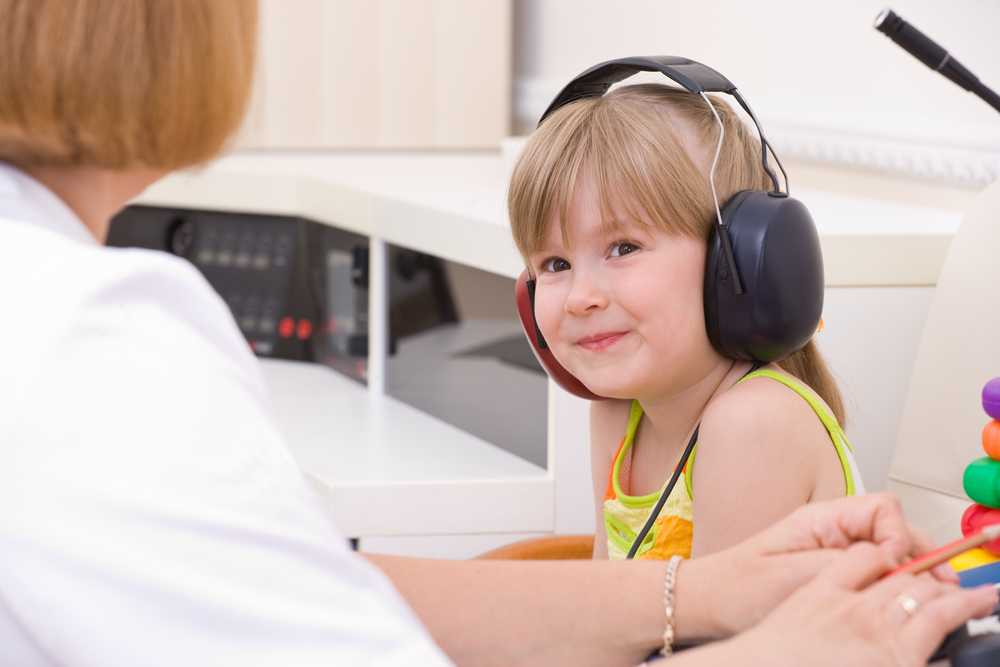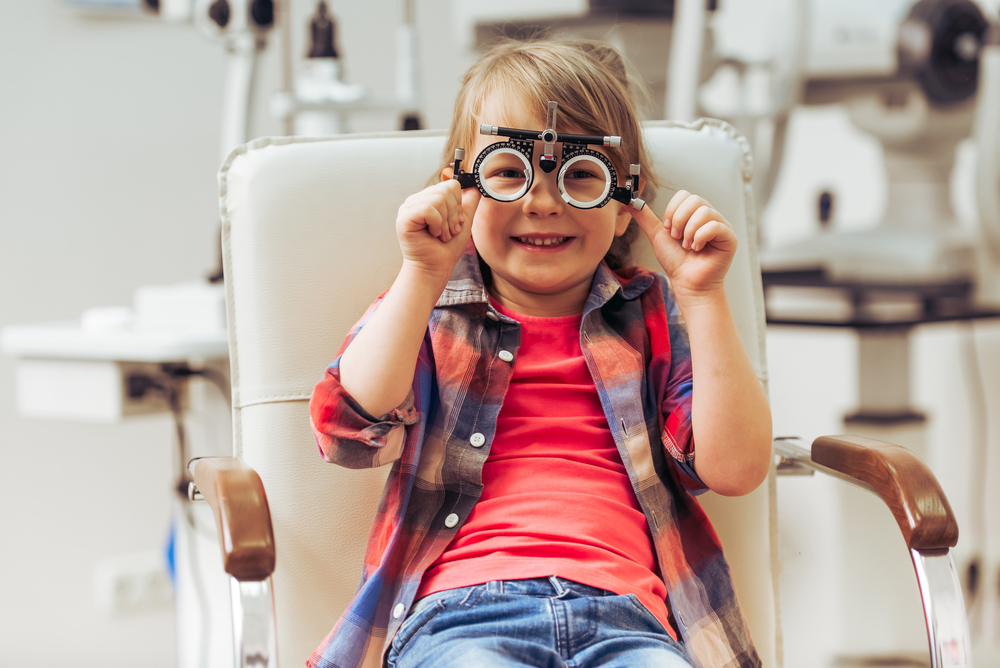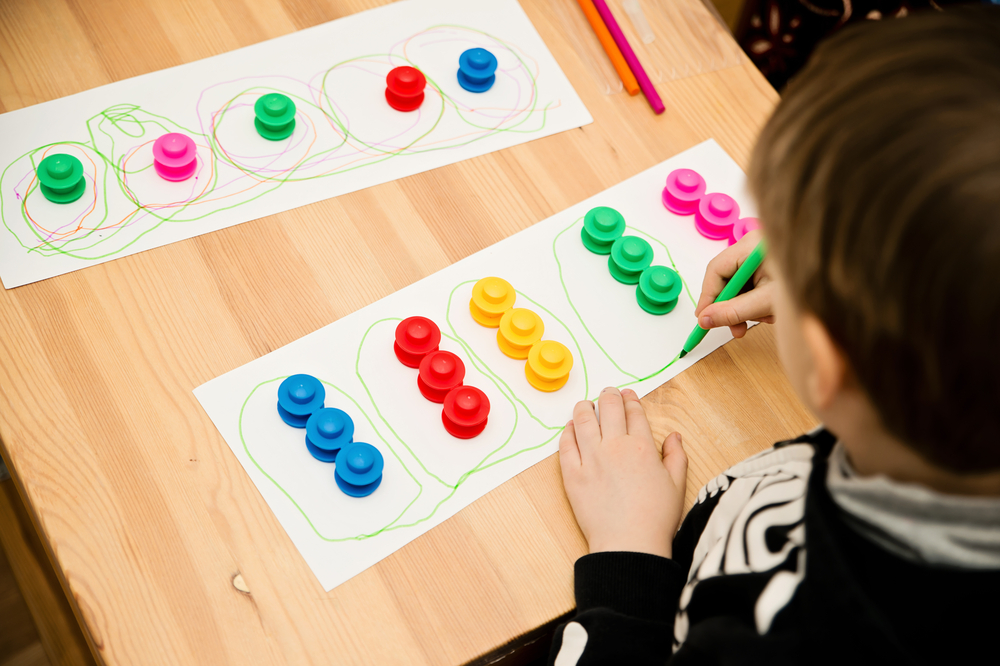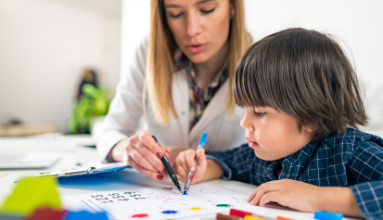Why Speech Therapists Request an Eye Exam and Hearing Test
A common question that will arise during this discussion will be whether your kid's hearing and eyes have been tested. The reason for this is because hearing, vision, and speech and language are all interconnected mechanisms that work together to accelerate your child’s development and their ability to communicate.
What are Hearing Tests?
Hearing tests for children are conducted by an audiologist or an ear, nose, and throat surgeon who has advanced training and clinical tools to perform a thorough evaluation of the structure and functioning of your child’s ears and hearing.

Hearing tests are important to ensure that your child’s ears are healthy and that they have no hearing difficulties that can interfere and negatively affect their development, school performance, communication, and safety.
To develop and learn optimally, your child needs to have the following hearing skills:
- Auditory awareness: Being able to detect sound in the environment and locate its source, especially when there is background noise
- Auditory discrimination: Being able to tell the difference between environmental sounds and speech sounds
- Auditory identification: Being able to attach meaning to sounds and speech, manipulate oral language structure, and change speech production based on feedback from the conversation partner
- Auditory comprehension: Being able to understand and remember what is being said, as well as making sense of what is being said even if the whole message isn’t heard.
Your child should have their first hearing assessment within a few weeks of birth, their second at 9 months to 2.5 years of age, and their third at 5 or 6 years of age before they enter the first grade. School-age children should have a hearing assessment at least every two years.
Some warning signs that your child may be experiencing difficulty with their hearing include:
- Not responding to name being called,
- Talking loudly,
- Listening to the TV at a high volume,
- Difficulty identifying where a sound is coming from,
- Inattentiveness and poor concentration,
- Delayed speech and language development.
If you’d like to see what a hearing assessment entails and what to expect, you can watch this video!
https://www.youtube.com/watch?v=kEyyqhynq-c
Eye Exams
Eye exams for children are conducted by an optometrist or ophthalmologist who has advanced training and clinical tools to perform a thorough evaluation of the structure and functioning of your child’s eyes and vision
These eye exams are important to ensure that your child’s eyes are healthy and that they have no vision difficulties, which can interfere and negatively affect their development, school performance, communication, and safety.

Visual Skills
To develop and learn optimally, your child needs to have the following visual skills:
- Visual acuity: Being able to see the environment and other people clearly
- Eye teaming skills: Being able to use both eyes together to see in a precise and coordinated way
- Eye movement skills: Being able to use the eyes in a smooth and consistent way
- Focusing skills: Being able to contract and relax the eye muscles to move between visual fields (e.g., seeing close up versus far away)
Your child should have their first vision assessment at 6 months of age, their second at 3 years of age, and their third at 5 or 6 years of age before they enter the first grade. School-age children should have a vision assessment at least every two years.
Remember, if your child has vision problems, then they are at a higher risk of speech and language delays, as well as poor school performance, as they won’t be able to see the content that is being taught or be able to do the work that is required of them.
Warning Signs
Some warning signs that your child may be experiencing difficulty with their vision include:
- Frequent eye rubbing
- Excessive blinking
- Poor eye tracking skills
- Difficulty maintaining eye contact
- Complaints of headache
- Delayed motor development
- Delayed speech and language development
If you’d like to see what a vision assessment entails and what to expect, you can watch this video:
https://www.youtube.com/watch?v=e5KGgbin7O0
Why Does Our Speech Therapist Want These Tests Done?
The reason your child’s speech therapist wants the hearing test and eye exam to be done is that hearing and vision issues have the potential to be the cause of your child’s communication difficulties. Frequently, it is simply a matter of addressing the vision or hearing problem, and the communication issues are remediated as a result.
It’s pointless for your child to attend speech therapy sessions if they cannot properly hear what the therapist is saying or properly see what the therapist is doing.
Hearing sounds and words help children talk and understand, and a child with hearing loss misses out on these sounds and words. This then leads to problems with speaking, reading, school performance, and even social skills.
Likewise, visual difficulties cause delayed non-verbal communication and pre-linguistic skills, which are an essential stepping stone towards communication. Much of how we communicate is through body language and facial expression, and children with visual difficulties miss out on these important developmental milestones.
Some Vision and Hearing Activities
This table shows you the vision and hearing milestones your child should reach at different stages in their development and how you can help promote these skills:

0-3-month-old baby
Vision
Sees primarily in shades of black, grey and white
Use monochrome color schemes filled with contrasting patterns and shapes to visually stimulate your child
Hearing
Reacts to loud sounds and responds to speech by looking
Use bells and rattles to get your child’s attention and make eye contact
3-6-month-old baby
Vision
Able to see color with a preference for bright primary colors
Add new items to your child’s room or frequently change the location of existing items to give them different viewpoints
Hearing
Turns eyes or head towards sounds
Use bells and rattles in different places around your child to get their attention, so they turn their eyes or head towards the source of the sound
6-12-month-old baby
Vision
Eyesight begins to refine, and your child has their first eye test
Introduce more color shades into the room by adding wall art, books and toys for your child to focus on and further refine their eyesight ability
Hearing
Responds to the word “no,” their name, singing, and music. Turns head to soft sounds and imitates speech and sounds of others
Introduce different types of sounds and voice patterns while encouraging your child to copy you and listen out for certain sounds
1-2-year-old toddler
Vision
Starts to differentiate between colors
Update your child’s playroom/bedroom with themes they show a preference to
Hearing
Consistently responds to new sounds and words and listens to simple stories or songs
Read books with your child every day and change your voice to match the characters. Sing new songs and encourage your child to listen to how they rhyme
3-4-year-old toddler
Vision
Begins to recognize, identify and name basic colors
Place different colored items in your child’s environment to strengthen their basic color recognition abilities
Hearing
Listens from a distance in the quiet and understands longer sentences
Play following instructions games and other games like “Simon Says.” Encourage your child to listen to soft sounds and try and identify what they are
5+-year-old child
Vision
Mature eyesight
Provide your child with a space that reflects their developing personality and allow them choices when redecorating their bedroom or playroom
Hearing
Understands complex sentences and sounds and can now retell stories in detail
Perform more complicated speech, language, and hearing tasks with your child
In addition to these tips, you can download our Speech Blubs app and work on some of our fantastic communication-centered activities. We’ve made sure that all of our activities are developed with your kid’s vision and hearing in mind so that they get the very best out of their learning experience.
 By Natalie Barnes
By Natalie Barnes